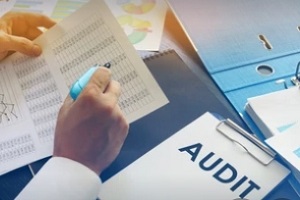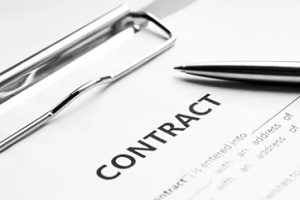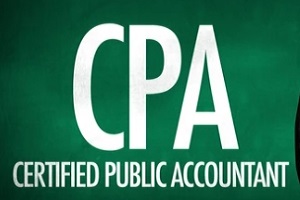A DCAA audit may be conducted to ensure that your business is in compliance with government accounting requirements and standards. If your business is receiving an audit from the DCAA, it can help to know how a DCAA audit works so that you can properly prepare.
What Is A DCAA Audit?
 The Defense Contract Audit Agency (DCAA) conducts audits and provides advisory services on behalf of the Department of Defense (DOD) and other government agencies. If your business applies for and works on government contracts, then you may be audited by the DCAA to ensure that you are following the government agency’s recommended accounting standards.
The Defense Contract Audit Agency (DCAA) conducts audits and provides advisory services on behalf of the Department of Defense (DOD) and other government agencies. If your business applies for and works on government contracts, then you may be audited by the DCAA to ensure that you are following the government agency’s recommended accounting standards.
About The DCAA Contract Audit Manual
The DCAA Contract Audit Manual, also called CAM, “prescribes auditing policies and procedures and furnishes guidance in auditing techniques for personnel engaged in the performance of the DCAA mission”. Auditors who work for the DCAA refer to this manual to conduct their audits. Government contractors can use the DCAA Contract Audit Manual to understand more about what to expect if they are audited.
Primarily, the DCAA Contract Audit Manual helps the auditors evaluate all of the activities that have an impact on the incurred costs of government contracts. Incurred costs are the recorded costs the government agency owes to the government contractor for their services, materials, etc. It is essential for government contractors to properly follow the guidelines for recording incurred costs to ensure they are “DCAA compliant”.
How The DCAA Performs Audits
The DCAA performs an audit by visiting the contractor and reviewing company financial records to look for any errors with incurred costs and accounting systems. Of course, the specific method in which a DCAA audit is performed depends on the type of contract, the government agency that the contractor is working with, and other details specific to the particular audit.
Determining Your Type Of Contract
 The way a DCAA audit is performed may depend on the type of contract. For example, the DCAA typically conducts audits on firm-fixed price contracts during the proposal stage, whereas they may conduct the audit during the incurred cost stage for other types of contracts such as cost-reimbursable contracts.
The way a DCAA audit is performed may depend on the type of contract. For example, the DCAA typically conducts audits on firm-fixed price contracts during the proposal stage, whereas they may conduct the audit during the incurred cost stage for other types of contracts such as cost-reimbursable contracts.
The purpose of the audit may vary slightly based upon the contract type. For example, they may conduct an audit to ensure that the contractor has been compliant in the past for firm-fixed price contracts, and they may perform an audit to ensure that the incurred costs are accurate and properly documented for cost-reimbursable contracts.
An Evaluation Of Your Company’s Records
The primary way the DCAA auditor will conduct the audit is by evaluating the company’s financial records. Government contractors are required to retain records for a certain period of time, and it is helpful for government contractors to organize all financial documents ahead of a DCAA audit to help the process go smoothly. A certified public accountant that is familiar with the DCAA process can help by evaluating the company’s records beforehand. Long-term, a CPA can ensure that all relevant financial documents needed for a DCAA audit are easily accessible.
Scheduling An Entrance Conference Or Timekeeping Audit
The DCAA auditor may begin with scheduling an entrance conference or by conducting a timekeeping audit. This allows them to visit the contractor for a tour, ask questions, and schedule a follow-up visit, or request that certain documents be delivered electronically.
Tips For Preparing For A DCAA Audit
You can prepare for a DCAA audit by ensuring that you are properly organized and operational, and reviewing all of your contract documents. Specifically, you can prepare for a DCAA audit by following these five steps:
- Organize your essential documents
- Ensure your accounting systems are operational
- Review your contract documents
- Inform your team and subcontractors
- Consult with a CPA professional
 A certified public accountant (CPA) can help ensure that you are prepared for the DCAA audit. Ideally, it is best to have a CPA assist with your accounting systems and bookkeeping, in which case there is not much that needs to be done to prepare for a DCAA audit as your accounting processes and incurred costs are reliably documented, assuming you work with an experienced and licensed CPA.
A certified public accountant (CPA) can help ensure that you are prepared for the DCAA audit. Ideally, it is best to have a CPA assist with your accounting systems and bookkeeping, in which case there is not much that needs to be done to prepare for a DCAA audit as your accounting processes and incurred costs are reliably documented, assuming you work with an experienced and licensed CPA.
It can help to conduct your own internal DCAA audit, with the assistance of your CPA professional. It is best to catch any issues with your accounting systems, incurred costs, contract, etc. before the DCAA auditor discovers them. This gives you the opportunity to adequately address the issue(s) by fixing them or notifying the auditor of the issue.
Get The Help You Need For A DCAA Audit With Diener & Associates
Diener & Associates helps ensure your accounting needs are organized and the systems run properly in case of a DCAA audit. If you would like to learn more about our accounting services, contact our certified public accountants at Diener & Associates today.
